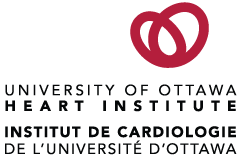Interested in Becoming a Peer Leader?
Peer leaders are women who have been diagnosed with cardiovascular disease and have a strong passion for supporting and helping other women in their recovery. Leaders must have come to terms with own cardiovascular diagnosis and be physically, emotionally and psychologically ready to help other women. To receive a Peer Leader Certification, interested individuals undergo a screening process to determine eligibility, after which they complete a three-day training workshop led by experts at the University of Ottawa Heart Institute.

Training Provided
Peer leader training consists of:
- Disease-specific information (general disease information, women and heart disease, risk factor management, stress coping and emotional management)
- Communication skills (active listening, sharing stories, facilitation skills, coaching skills, public speaking)
- Support skills (non-directive support, building motivation)
- Self-care skills (goal setting, action plan, problem-solving)
- Access to community resources to address ethical concerns, role conflict, crisis management
Community of Practice
Peer Leaders meet every six to eight weeks to support each other, share knowledge and experiential learning, and, most importantly, keep each other committed to, and consistent with, the values and principles of peer support.
The camaraderie experienced within a group of like-minded individuals who share similar values and lived experiences can help to maintain the health, hopefulness and wellness of the leaders, provide opportunities for learning and the sharing of wisdom, and remind each other of the guiding values of peer support.
Benefits
People who provide peer support experience higher rates of physical health and life satisfaction, lower rates of distress and are more optimistic about their health1. Here are some of the benefits that Peer Leaders can gain by becoming involved:
- Sense of purpose (accomplishment and competence)
- Well-being (making people feel good about themselves)
- Knowledge gain (more knowledgeable and confident in own skills)
- Acceptance (opportunity to come to greater terms with own illness)
- Self-help (protection from social isolation and physical decline)
Interested in becoming a Women@Heart Peer Leader? Spaces are limited.
Contact us for more information.
References

